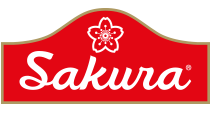01 dez Vitamins for Recovery from Alcohol Addiction
Group therapy and participation in programs like Alcoholics Anonymous can also provide a valuable support system for individuals in recovery. At Gateway Foundation, we understand the importance of nutrition for recovering addicts, and we incorporate it into our many recovery programs and services. Every individual has different nutritional needs that can impact their experience in treatment, which is why we work hard to provide customized treatment plans that address nutrition. This also involves taking into account any issues the patient has around food, including eating disorders. Depending on individual needs, the plan may leave room for snack times, or it may be a better option to restrict intake to three times per day if the patient has issues with things like binge eating. Understanding the relationship between nutrition and addiction recovery means understanding the roles nutrients play in the body.
Substance Use Treatment
- Whether you’ve just quit drinking or you’re struggling with symptoms of PAWS, this list of vitamins for withdrawal can seriously change your life for the better.
- It’s good to consider integrating herbal remedies like milk thistle into your recovery plan.
- I discovered that quality supplements can significantly alleviate withdrawal.
- Neurotransmitters like dopamine are released through the brain’s reward system, and they are essential for reinforcing enjoyable experiences.
- You can see a counselor to learn how to manage stress, join a support group to talk to others who understand what you’re going through, and get regular exercise to stay healthy and lower anxiety.
Lack of these nutrients can result in anemia, which makes the sufferer feel cold, lethargic and frequently dizzy. They may also experience frequent headaches and feel short of breath. To get more magnesium, eat dark leafy greens, nuts, seeds, avocados, bananas, wild salmon, and tuna. Amino acids are in lean meats, eggs, seafood, dairy, tofu, quinoa, seeds, and beans. Took three times but now I am alcohol free for 26 weeks 3 days, AND I have alcohol in the house.
How Does Nutrition And Supplementation Impact Addiction?
And there was a 35% reduction in mood disturbance in hospitalized patients after vitamin C treatment (60, 61). And high doses of vitamin C have been shown to increase endorphin levels, decrease opioid use, and reduce the withdrawal syndrome of heroin addicts (58). It might seem unbelievable but there is research demonstrating vitamin C’s usefulness in overcoming addiction and reducing withdrawal symptoms. In animals, zinc reduces the intensity of morphine dependence, and zinc chelators worsen withdrawal symptoms (76, 77, 78). Other studies have shown that omega-3 supplements reduce cravings for nicotine and reduce the number of cigarettes people smoke daily (26, 27).
Many treatments for alcohol use disorder exist but are rarely prescribed
This is because theanine increases alpha brain waves, and I found out that very high alpha brain waves can actually cause anxiety as well. I usually take just 200 mg, but you should experiment and see how much you can tolerate. As I’ve discussed before, https://thecupertinodigest.com/top-5-advantages-of-staying-in-a-sober-living-house/ theanine can protect your brain from alcohol, increase your brain’s growth hormone, and lower your stress hormones. It’s important to point out that many prescription drugs are anticholinergic, meaning they reduce acetylcholine in the brain.
- Oxidative stress can change neuronal pathways and cause addictive behaviour.
- Historically, most drug treatment programs have included counseling and 12-step approaches like Alcoholics Anonymous (AA).
- And supplementing with magnesium diminishes withdrawal complications, reduces the severity of their withdrawal symptoms, and lowers their need for anti-anxiety medication (86, 87).
- Other new habits, such as regular exercise, mindfulness practice, and a healthier diet, can all contribute to boosting your health in recovery.
- As you embrace sobriety, prioritizing nutrition becomes essential for your overall well-being.
- The causes of addiction cannot be traced to a single deficit; rather, it is the result of a complex interplay of genetic, environmental, and neurological factors.
Join Our Brain and Mental Health Community
Unfortunately, the calories gained from alcohol and junk food are “empty calories.” That is, they are calories lacking nutrients and are of little value to the body. A personalized plan can help make the most of nutritional therapy, so you may want to consider working with a dietitian. They’ll help you create a diet that addresses your unique health situation, weight, and personal diet needs. Ask your Sober House doctor for a referral, or contact your local hospital, community health center, or university. There are holistic addiction treatment centers and substance use treatment programs that emphasize nutrition education, too. Regularly consuming alcohol impairs your body’s ability to properly absorb vitamins thereby inducing a variety of substance abuse symptoms such as bone loss, dehydration and more.

Moreover, medical professionals often recommend supplementing with oral or intravenous thiamine, especially for individuals with alcohol use disorder. While vitamins alone cannot treat alcohol withdrawal syndrome, B vitamins, especially thiamine (B1), may be administered as part of medical treatment to address nutritional deficiencies. Remember to consult a healthcare professional for personalized advice on nutritional supplementation. During the withdrawal process, alcohol cravings and irregular appetite may occur. To help manage these withdrawal symptoms, incorporate healthy food choices and regular eating patterns into your daily routine. Nutrient-dense foods, such as fruits, vegetables, lean proteins, and whole grains, can help provide the necessary nourishment for your body during this challenging time.
- It has long been used as a traditional remedy for a variety of illnesses, including liver damage.
- This lack of vitamins and minerals can make recovery more difficult with worsened withdrawal symptoms.
- You’ll need to be especially careful not to replace alcohol with sugar or caffeine.
A person with alcohol use disorder may also be prescribed a B-vitamin complex or a vitamin B12 supplement. If you are vitamin A deficient, it is important that you take a supplement under the care of a physician, as high doses can lead to liver disease. It’s important for every person to develop healthy eating habits, but it’s crucial for people who are recovering from a drug or alcohol addiction.


No Comments